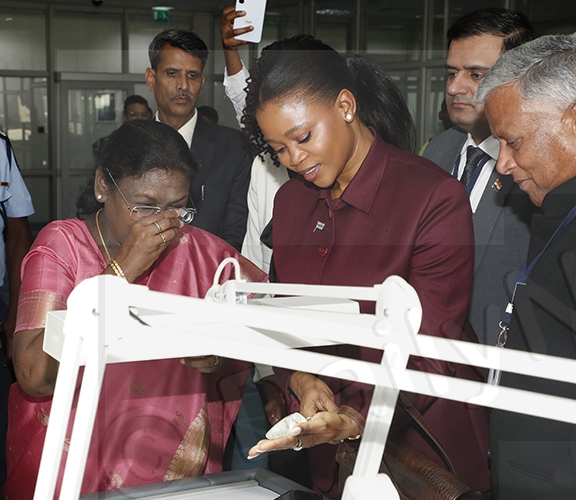Import ban yields results products positive
25 Jul 2022
Though viewed as an unprecedented and hasty decision by some quotas of the society, the ban on importation of horticulture products has been hailed as a positive move towards empowering local businesses.
Representatives of some local retailers at a conference for horticulture farmers held at Botswana University of Agriculture and Natural Resources (BUAN) in Sebele on Saturday July 23 said the ban led to tremendous strides towards improved quality of locally produced vegetables.
The conference organised by BUAN in conjunction with partners in the agricultural sector; Syngenta and Agrizor aimed at training farmers on production of horticultural products.
Mr Mukani Julius of Tsetseng Retail Group, said the ban inspired local horticulture farmers to produce more and quality products.
He said Tsetseng Retail Group was operating 32 Spar supermarket outlets across the country and that 70 per cent of products in their stores was from the local farmers.
He said the company was allowed to import 30 per cent. He assured the farmers that Spar was determined to support and buy locally produced horticulture products.
“We need each other for our businesses to grow. As we encourage you to produce fruits and vegetables of our desired quality such products must as well attract the well desired customer base,” said Mr Julius.
He urged farmers to produce quality vegetables that Spar customers would enjoy buying from the stores.
“I am happy for the ban on importation of horticulture produce. It has greatly boosted the locals to produce more and of desired quality.
Since the ban was imposed at Tsetseng Retail Group we have seen tremendous growth in terms of quality of the local horticulture products,” he said.
Mr Julius told farmers to be mindful that business was competition.
He advised them to bring samples of their produce to the store for quality sampling.
“We do our best to guide farmers on what we expect from them in terms of quality, handling and packaging of their produce.
He said his company would only buy farmers produce based on the quality.
“We assist farmers in grading their products,” he said.
He said the local market could absorb all produce from local farmers.
He said it was unfortunate that some farmers were not eager to adhere to quality standard instead they only complain that their produce was going to waste.
He observed that some farmers bring products of desired quality for sampling just to win a tender to supply only to deliver produce of low quality compared to samples presented for bidding.
“We wonder what happens to your vegetables. Products of best quality are brought as samples and then the quality diminishes with time,” he said.
He advised horticulture farmers to take their trade seriously, adding that it was equally important for farmers to register companies and brand packaging.
“Packaging, handling and branding are equally important.
Label your products and provide all the necessary details so that you can be reached out by the consumers with feedback, whether positive or negative. Also provide us with your cropping plan,” he said.
Further, Mr Shalobane said some farmers were clueless when it comes to packaging their products.
However we are doing all we can to guide them accordingly. We also encourage them to improve and maintain quality of their produce,” said Mr Shalobane.
Mr Julius acknowledged that majority of horticulture farmers in the country were small scale and therefore depended on sales revenue to run the business and that there was a need to pay them on time.
“We value what you were giving to us. Losing you means losing our business,” he said.
Mr Hussain Shalobane of Square Mart shared similar sentiments as he was equally impressed by the recent improvement on the quality of locally produced vegetables.
He said the ban was a blessing in disguise.
“We are equally impressed by the quality of your products,” he added.
However, Mr Shalobane was concerned that even though retail stores were doing their best to take farmers through a learning path towards to improve quality of their products, some were not heeding to their advice.
“We are concerned by your packaging. Some are not doing it to our expectation,” he said. In addition, he said the other teething issue was the product pricing where were challenged to price their produce. Ends
Source : BOPA
Author : Moshe Galeragwe
Location : SEBELE
Event : Horticulture Conference
Date : 25 Jul 2022





